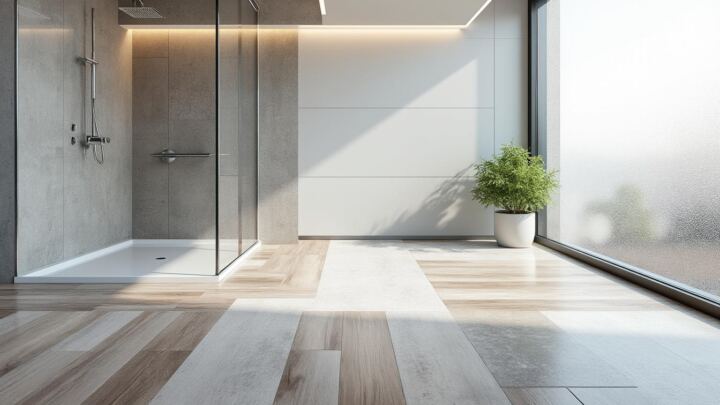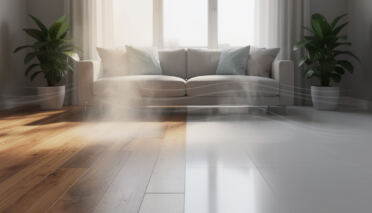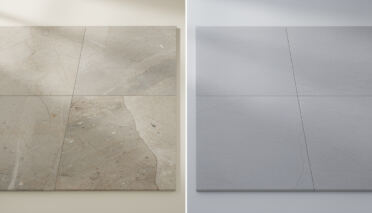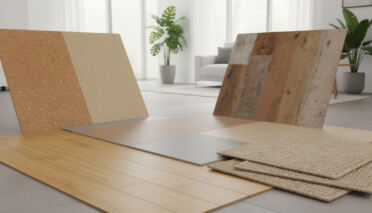Bathrooms are often the most moisture-laden spaces in our homes. Choosing the right flooring can make a world of difference in maintaining both functionality and aesthetics. Here, we dive deep into the various flooring options that resist water, helping you find the perfect fit for your bathroom renovation in 2025. Each option brings along its unique benefits, potential drawbacks, and maintenance needs.
Brief
- 💧 Waterproof vs. Water-Resistant: Understanding the key difference is essential for making the right choice.
- 🎨 Stylish Options: From sleek vinyl to luxurious natural stones, there’s a look for everyone.
- 💰 Installation & Costs: Not just material costs; installation prices can vary significantly, affecting your budget.
- 🛠️ Durability: Explore options that withstand everyday wear and tear in a bathroom environment.
- 🌟 Maintenance Needs: Different materials require different levels of upkeep; know what to expect before making a choice.
Understanding Waterproof vs. Water-Resistant Flooring
The terminology here matters significantly—waterproof and water-resistant are often used interchangeably, but they mean different things. You want to make sure you clarify that when shopping for bathroom flooring.
Waterproof flooring is impervious to water. This means water can sit on the surface without causing damage—perfect for the unpredictable splashes and spills of everyday use. On the other hand, water-resistant flooring can manage moisture to a certain extent but may eventually be compromised. Prolonged exposure can lead to swelling, warping, or even peeling, particularly in high-moisture environments like bathrooms.
Let’s delve into some key factors to consider:
- 🌊 Moisture Levels: How often does water come in contact with your flooring?
- 🔍 Performance: What kind of warranty and performance guarantee do you have for the flooring?
- 💡 Flooring Lifespan: Consider how long you expect your floor to last under normal wear and tear in a bathroom setting.
Here’s a quick look at the different types of flooring available:
| Type of Flooring | Waterproof? | Price Range (per sq. ft.) |
|---|---|---|
| Luxury Vinyl Flooring | Yes | $2.50 – $7.00 |
| Ceramic Tiles | Water-Resistant | $2.00 – $8.00 |
| Porcelain Tiles | Yes | $3.00 – $10.00 |
| Natural Stone | Partially (sealed) | $5.00 – $20.00+ |
| Waterproof Laminate | Yes | $2.50 – $6.00 |

The Popular Choice: Luxury Vinyl Flooring
Luxury vinyl flooring, including vinyl tiles (LVT) and vinyl planks (LVP), has taken center stage as a favorite for bathroom spaces. It’s gaining traction not just for its durability but also for its incredible versatility and aesthetic appeal.
This flooring is designed with a 100% waterproof core, making it perfect for areas where moisture is a constant concern. It mimics natural materials like hardwood and stone, fooling the eye while offering high functionality.
Benefits of Luxury Vinyl Flooring
- 🏠 Warm Underfoot: Unlike cold tile, vinyl feels warmer, providing comfort during chilly mornings.
- ✨ Ease of Maintenance: Regular sweeping and occasional mopping keep the floors looking great.
- 🚀 Simple Installation: Many products feature click-lock systems, allowing DIY enthusiasts to handle installation with ease.
However, it’s not all sunshine; it’s essential to consider the potential downsides:
- ⚠️ Susceptible to Scratching: Heavy furniture can dent the surface.
- ☀️ Fading: Extended sun exposure may lead to color fading over time.
- 📉 Lower Resale Value: Compared to natural materials, vinyl might not add the same value when selling your home.
Ceramic and Porcelain Tiles: Classical Durability
Ceramic and porcelain have long been favorites for bathrooms due to their durability and resistance to moisture. Porcelain is denser than ceramic, making it a better option for high-moisture areas.
Why Choose Ceramic and Porcelain Tiles?
The benefits of these materials are numerous:
- 💪 Exceptional Durability: With proper care, these tiles can last for decades.
- 🎨 Design Versatility: Available in countless styles, colors, and finishes, you can easily customize your bathroom.
- 🔒 Stain Resistant: Properly glazed, these tiles resist most stains, making cleaning a breeze.
However, it’s essential to weigh the trade-offs:
- ❄️ Hard Surface: Can be uncomfortable for standing long periods.
- ☘️ Maintenance: Grout lines require periodic cleaning and sealing to maintain their appearance.
- 🚧 Installation Cost: Installation can be pricey if professional help is needed.
| Type | Water Absorption | Average Lifespan |
|---|---|---|
| Ceramic Tiles | 0.5 – 3% (water-resistant) | 20-30 years |
| Porcelain Tiles | Less than 0.5% (waterproof) | 50+ years |

The Allure of Natural Stone Tiles
If you’re after elegance and a unique aesthetic, natural stone tiles might catch your eye. Options like granite and slate provide beautiful surfaces that can raise your bathroom’s luxury factor.
Age-Old Natural Beauty
Natural stone brings numerous advantages:
- 💎 Timeless Aesthetic: Each piece is unique, with natural variations that add intrigue.
- 🔝 Long-Lasting Quality: If well-maintained, natural stone can last for generations.
- 💰 Increased Property Value: These materials often provide excellent returns on investment for upscale bathrooms.
However, the drawbacks often come hand-in-hand with that charm:
- Sealing Required: Proper sealing is essential to protect from stains and moisture.
- 🧱 High Cost: Natural stone can be the priciest option.
- ⚒️ Complex Installation: Handling natural stones usually requires professional installation for best results.
The Emerging Waterproof Laminate Flooring
Traditional laminate flooring hasn’t typically been a favorite for bathrooms due to its vulnerability to moisture, but innovations have led to the rise of waterproof laminate flooring options! These are specifically engineered to withstand bathroom conditions and are gaining popularity for good reason.
Pros and Cons of Waterproof Laminate
As laminates evolve, here’s what you can expect:
- 💡 Aesthetic Appeal: Laminate mimics the look of hardwood at a fraction of the price.
- ⚡ Easy Installation: Click-together systems make it user-friendly for DIY installations.
- 🏡 Affordability: Typically cheaper than many traditional options.
However, it’s essential to stay cautious about features:
- ⚠️ Not Fully Waterproof: It’s water-resistant to a degree, but persistent water exposure can create issues.
- 🔧 Limited Repair Options: Once damaged, laminate can rarely be repaired; replacement is usually required.
- 📉 Moderate Lifespan: Generally lasts around 10-20 years.
Factors to Consider When Choosing Bathroom Flooring
Choosing the perfect bathroom flooring isn’t only about aesthetics or price—it also requires consideration of several key factors to ensure you make the right investment.
- 🌧️ Moisture Exposure Levels: Understand the moisture levels in your bathroom. Does it have a shower, or is it just a powder room?
- 💼 Maintenance: Evaluate your lifestyle and how much upkeep you’re willing to commit to.
- 🛠️ Installation Method: Consider whether you’ll go DIY or hire professionals; this affects your budget significantly.
- ⏰ Timing: Assess how long you plan to stay in your home. A long-term investment may merit higher initial costs.
What’s the best waterproof flooring for bathrooms?
Luxury vinyl and porcelain tiles are often considered the best waterproof flooring options due to their durability and water resistance.
Can I install waterproof laminate flooring in my bathroom?
Yes, newer waterproof laminate flooring is designed to withstand bathroom conditions, but it’s crucial to manage moisture exposure regularly.
How often should I seal natural stone tiles?
Natural stone tiles should be sealed at least once a year, or more frequently, depending on usage and exposure to water.
Are porcelain tiles really better than ceramic?
Yes, porcelain tiles are more water-resistant compared to ceramic, making them a superior choice for high-moisture areas like bathrooms.
Is sheet vinyl a good choice for bathrooms?
Yes, sheet vinyl is a cost-effective option for bathrooms, providing minimal seams and excellent water resistance.



